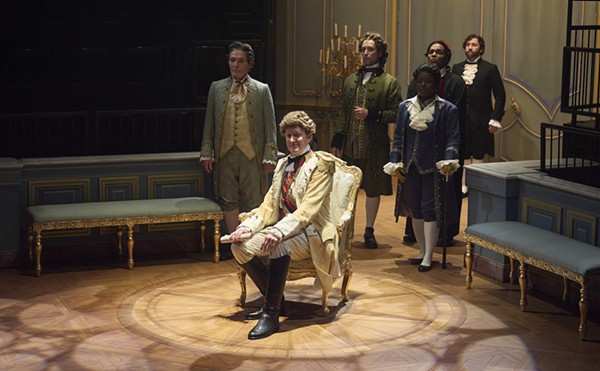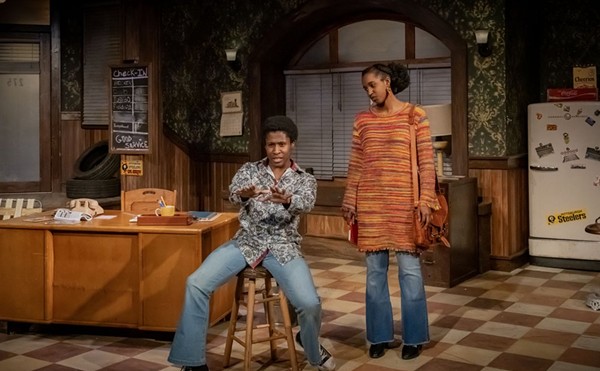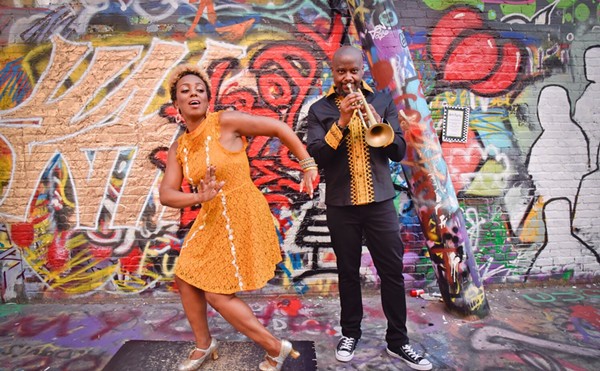The premise tilts toward the preposterous: Take a story about sexual orientation, gender identity, race and cultural oppression; mix in religious hypocrisy and faith in equal measures. Then set the whole thing in the antebellum South. Disaster should loom. But in Robert Sheeley's Rainbow Plantation Blues, it doesn't. Sheeley, a graduate of Geneva High School who is "self-educated in history and politics," spins a compelling, sincere story of reconciling one's inner self with one's outer environment.
Jonathan Thomas returns from a Northern education to his degenerate dying father, seemingly fragile mother and a plantation whose success was nourished by the blood and sweat of slaves. He carries within him questions about the institution of slavery and his undeniable attraction to men. Filled with self-loathing, Jonathan maintains a brilliant, brittle façade of the young entitled plantation heir, courting his mother's choice of fiancée, attending a fashionable church featuring a charismatic, fiery preacher and visiting relatives in gracious Charleston. He also is swamped with desire for his childhood friend and slave Kumi, intellectually fascinated by the freethinking atheist Stephen Wentworth, wracked with guilt about his impending marriage and prone to delicious bouts of masturbation.
The novel follows the unraveling of not only Jonathan's mask, but of nearly every character. As truth reveals itself, it causes confusion among family members, an intimate circle of friends and the larger community. Says Jonathan to Stephen, "So often I feel overwhelmed, and I know not where to begin. I constantly feel on the edge of madness." And Stephen's response: "Begin with yourself. Understand yourself."
This self-actualized, 21st-century response may sound ridiculously anachronistic. Much of the book blends 19th-century appearances with contemporary thoughts and realizations. The book's women push the tidy envelope of Victorian behavior as they scream at brothers and husbands, kiss unmarried men and follow their own sexual desires.
Despite these incongruities, the novel succeeds, deftly weaving flashbacks and musings into the action of the narrative. The layered plot, complex characters and absolute sincerity of Jonathan's attempt to understand himself and his place in the world fulfill expectations and push the non-period language into the background. The story trumps the telling.
According to an interview on Sheeley's website, robertlsheeley.com, this is the point. "Well, there are no love stories, at least none that I know of, between LGBT people from pre-Civil War, 19th-century American literature, only sodomy-lawbreaker and dress-code-violator sketches. So I had to invent my own (our own) story. I chose the antebellum South and the love between a black-male slave and a white-male master because it sets up the seemingly most insurmountable situation of them all."
Rainbow Plantation Blues is a self-published novel — what was once smirkingly termed a vanity publication, implying that the need to write one's story was nothing more than an empty conceit. Not any more. The growing strength of subsidy publishers like iUniverse and Booksurge, coupled with the distribution potential of the Internet, has changed what is available to buy and read. This bottom-up, voice-of-the-people business model, in theory, allows more stories to be told to a wider audience — or at least larger target markets— unshackled by the chains of traditional publishing houses.
So let freedom ring.











